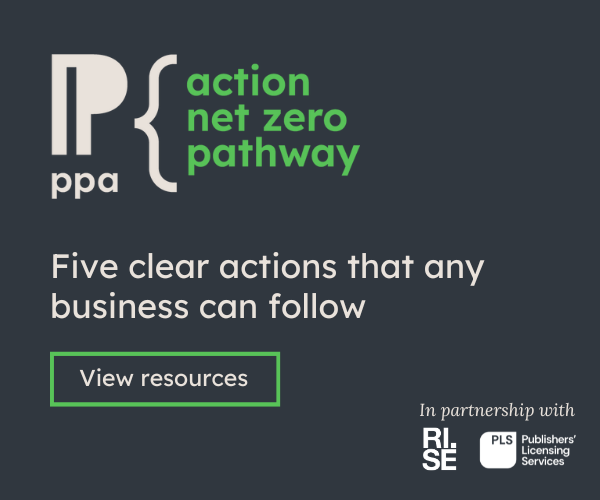Chart your career from the start to now.
I came to the UK from America to study. I don’t actually remember a time that I didn’t want to work with the written word in some capacity. I have an MA in English and Linguistics, so I think that was only natural.
I applied to all sorts of magazine and book jobs straight out of uni and before starting in sales at Haymarket. I worked my way up at Haymarket for several years and I ended up managing the List Rental Division. I loved it because I got to work across all the brands at Haymarket. As I ran that division, I started to get really into finding ways to promote that department and that is how I found marketing – essentially, I started marketing a department, externally and within a company.
A couple of years later, a marketing role at the London Review of Books (LRB) came onto my radar. I just knew I had to apply to it. I just remember thinking ‘this is it!’. And the rest is history – I’ve now been there for more than a decade. I started building the marketing division at the LRB and then I moved into the Commercial Director role in 2019, and finally I took on some very very big shoes in October, becoming the Publisher.
You’ve been at the LRB for 10 years. What are some of the biggest industry changes you’ve noticed since you started there?
One of the things I love about publishing is that you can see industry changes incrementally. Like seeing the evolution of platform reading habits, or the way the way people interact with subscriptions and micropayments since the rise of things like Netflix and Amazon Prime. I also love that in addition to these evolutions you also see huge shifts, like the roller coaster that we’ve all been on in the last few years. But it’s the fundamental thing about publishing that stays the same that I love the most: the fact that we as publishers all want to take written words and get them out to people one way or the other, however we can. The industry changes and so do the challenges we face, but ultimately it’s the same essential dissipation of words and knowledge, and that is what I love about publishing.
Do you think creating physical spaces (like the London Review of Books Bookshop and Cakeshop) for your special interest communities are key to an overall brand strategy?
I think the answer to that is both yes and no. I think the Bookshop and Cakeshop have built their own brand, and they run on their own terms. But they also contribute to an overall strategy that we have, which is to foster culture and ideas. For instance, the events programme at the bookshop is so vibrant: it’s packed with an amazing author series, so it really holds true to who we are at the LRB and what we represent. And likewise with the Cake Shop representing a kind of Café Society also reinforces that. They’re an extension of the LRB, but also a recognisable and separate thing. The LRB isn’t just a magazine that has this huge reach – it’s also a community of readers. I guess I’ve always seen it as the London Review of Books is this umbrella and these are all parts that sit under the same rubric.
LRB is known for its longer form journalism – how do you think your publication is continually able to cut through the noise of social media, everyday life, and shorter attention spans?
I think it’s not only how we do that, as I believe ‘cutting through that noise’ is what we actually do – I think it’s kind of our raison d’’être. There are plenty of places to get information and there are plenty of places to find news and sound bites, but I think we are one of the rare places to get considered thought on these issues. And we give those issues space to stretch out and breathe. I think this creates irreverent, fun, and funny content… maybe more so than people think when they hear about the London Review of Books! The reason we’re able to do this is because it is the foundation of who we are. Our editors commission great work, and they’re always looking for new, exciting and experienced voices for the paper. We won’t always publish pieces just because they’re timely, or because they’re news but because they’re the right piece on the right issue or the right writer on the right issue. I feel that if you start with the emphasis on the quality, the readership follows. So in answer to your question, it’s not how do we do it, it’s that it is what we do and then the business model follows that.
LRB has published translated responses to the Ukraine invasion on their website – what do you think the role of publications like yours have in educating and creating conversations around current affairs?
It’s interesting to think about current affairs and the LRB because one of the things that makes us different is that our content is truly evergreen. I’d like to think that in the future, our current view of the crisis that we published today will still be interesting in 20 years, because it will be saying something of value and interest with its offer of different voices, viewpoints and reflections.
I think that our role is to inform and give people this information so that they too can have those expansive ideas.
If you had to give one starting piece of advice to a publisher looking to build their subscriptions – what would it be?
I’ll give you three!
My first would be to get some tools in place to model your subscriptions – and there are even free ones online, so I’m not saying go spend a lot of money on it. But you need to know the variables that feed into circulation revenue growth to make manageable targets, to see how much you need to spend to get your growth goals.
If you don’t have any sense of how many people come on and off a file and how much revenue you get at different times in a life cycle – if you can’t model any of that out – then I think it’s going to be really hard to build a subscription business. Understand those fundamentals.
Number two would be to know your audience. This can be via data you already have, or you could do exit surveys when people cancel, or you can do really in-depth third party profiling. There are all sorts of ways to know your audience. I think it’s important to remember you’re not building a subscription model for you, or for your board, or internal stakeholders. You’re building something for your readers, and most things that we think we know are wrong anyway! So find out who your readers are, how they read it, what they value, and tap into them. And then you can build a model for growth.
My third one won’t surprise anybody: it’s test! I love testing – I believe in it so fundamentally, and it’s pretty much free. If what you’re trying to do is grow subscriptions, instead of trying to find new platforms to spend loads of money on, test and iterate in the places you already are, because that’s key to your growth.
What’s on your radar?
Now that I’ve become the Publisher, I feel like everything is on my radar! Suddenly I’m very interested in everything from paper strikes to podcast advertising. But I guess the truth is everything is a concern and also exciting in its own way. That’s why I love being in this industry, because it keeps us all on our toes, everything from GDPR, to cookies, to Facebook algorithms – balancing these things in our jobs is enough, let alone the ever-changing global situations. The world throws these curveballs at us, and we are continually faced with rhetoric, soundbites, untrustworthy information… and at the end of the day, it’s the thoughtful, considered writing that’s the antidote to that. Those of us in publishing are creating the content that battles those forces, and that always excites me.
What magazine do you stockpile?
Oh, well, obviously the London Review of Books! I have every copy from every year I’ve worked there in lovely binders on my bookshelf. I am also American, so I’ve always read The New Yorker ever since I was a teenager. It makes me feel connected to home. I do tend to read my magazines in order, but I must admit that I sometimes skip ahead in my New Yorker to look at the cartoons!









